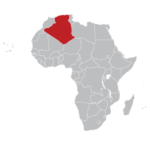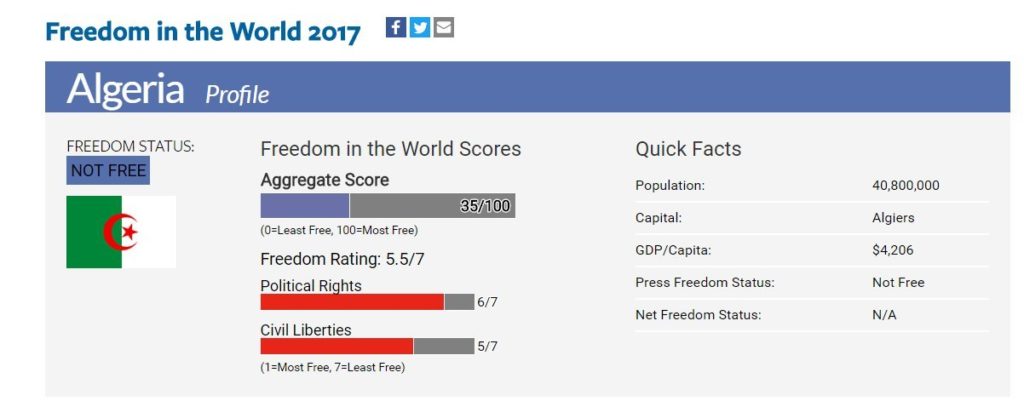 In April 2019, Algerians ousted President Abdelaziz Bouteflika, becoming the fifth Arab country to topple a president since 2011, the Brookings Institution reports. Though successfully deposing the head of state, the protests continue today, with citizens taking to the streets to call for systemic regime change. The military begrudgingly endorsed the protesters’ demands to oust Bouteflika, but has since attempted to manage the transition, seemingly to preserve its interests. What are the military’s interests? And what are the demands of the protesters?
In April 2019, Algerians ousted President Abdelaziz Bouteflika, becoming the fifth Arab country to topple a president since 2011, the Brookings Institution reports. Though successfully deposing the head of state, the protests continue today, with citizens taking to the streets to call for systemic regime change. The military begrudgingly endorsed the protesters’ demands to oust Bouteflika, but has since attempted to manage the transition, seemingly to preserve its interests. What are the military’s interests? And what are the demands of the protesters?
Islamists, labor union activists, academics, journalists and others have tried to craft a plan to pull their country out of political crisis and prepare for a presidential election — but faced pressure from authorities and divisions within the country’s democratic movement, AP analyst
 The 600 participants at Saturday’s conference called for an independent body to supervise the election, whose date has yet to be fixed…. Under pressure from authorities, the conference participants agreed to take out the expression “political transition” from the road map and replace it with “pre-electoral period.” They also dropped explicit demands that the interim president and prime minister step down, though maintained a demand for the departure of “all symbols of the old regime.”
The 600 participants at Saturday’s conference called for an independent body to supervise the election, whose date has yet to be fixed…. Under pressure from authorities, the conference participants agreed to take out the expression “political transition” from the road map and replace it with “pre-electoral period.” They also dropped explicit demands that the interim president and prime minister step down, though maintained a demand for the departure of “all symbols of the old regime.”
The recent anti-corruption efforts in Algeria are necessary but selective effort to crack down on endemic corruption linked to the Bouteflika era, argues Algerian journalist Ahmed Marwane, He emphasizes that without an independently elected government, Algerians will continue to suspect that anti-corruption efforts are merely a political tool for the current government on WINEP’s Fikra Forum.

POMED
On July 17, the Foreign Policy program at Brookings will host a panel discussion on the results of a survey report conducted in Algeria of over 9,000 protesters and military personnel. Brookings visiting fellow and co-author of the paper, Sharan Grewal, will present the findings of the survey. Following his remarks, he will be joined by former U.S. Ambassador to Algeria Robert Ford and Alexis Arieff of the Congressional Research Service in a discussion moderated by Brookings Senior Fellow Tamara Cofman Wittes.
Algeria’s uprising: Protesters and the military
Wednesday, July 17, 2019, 10:00 – 11:30 a.m.
The Brookings Institution, Falk Auditorium
1775 Massachusetts Avenue, N.W. Washington, D.C. 20036








